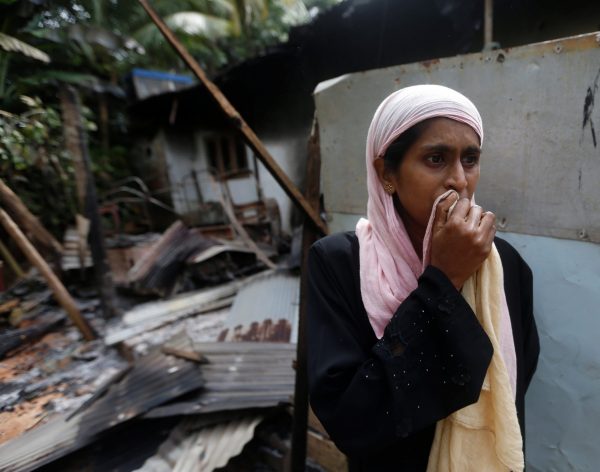Unfortunately, these types of sporadic acts of violence targeting Sri Lanka’s Muslim community have been occurring for the past several years. Notable examples include the 2012 attack on a mosque in Dambulla in central Sri Lanka by a large mob who claimed the mosque had been illegally constructed on sacred Buddhist land. And the rioting in Aluthgama in 2014 — widely attributed to Sinhalese Buddhist nationalist organisation Bodu Bala Sena — that left four dead, injured and displaced many others and caused significant property damage.
The most recent attacks took place in different parts of the country and appear to have been coordinated. So far none of the attackers have been arrested. The failure of the security forces to apprehend those who have broken the law is puzzling. Civil society organisations, political parties, foreign governments and the Bar Association have all called for the government to uphold the rule of law by taking action against the attackers.
Yet the police have not even taken the first step to protect the Muslim community and arrest those who have been documented during their attacks.
The required evidence is readily available. A national television station showed an incident where the temporary shelters of Muslims in a rural area were being demolished with a prominent Buddhist monk in the picture. In many cases those who have suffered violence and destruction at the hands of violent groups have also provided the police with footage of the attacks.
The leaders who are in charge of the security forces, including the President, Prime Minister and Minister of Law and Order have agreed that the police ought to act, but government and police inaction continues.
This inaction is likely because the government feels politically on the back foot. The massive crowds that have participated in political rallies organised by the Joint Opposition is indicative of their ability to muster people power. In this context, the government’s instinct, out of fear of worsening its popularity, may be to delay taking decisive action and instead hope that the problem will go away.
The government may also be trying to follow the example of Myanmar, where Aung San Suu Kyi’s government has sought to accommodate the hard-line Buddhist nationalist groups within the government in order to win their support. Yet this strategy has had dire consequences. It has further legitimised the hardliners in the eyes of the general public and the attacks against Muslims in Myanmar have become more frequent and widespread.
In a similar manner, the Sri Lankan government appears to be seeking to accommodate hard-line Buddhist nationalist groups in order to deal with the political challenges posed by the opposition parties and their exploitation of Buddhist nationalist sentiment and insecurities.
Although the anti-Muslim violence is currently centre stage, violence against evangelical Christian groups that engage in conversion activities has been an issue for longer and remains unresolved. The National Christian Evangelical Alliance of Sri Lanka has reported that since the beginning of 2017, over 20 incidents of violence and intimidation have taken place at Christian places of worship across the country.
Local law enforcement officials are often reluctant to take effective action against persons who infringe on the liberties of religious minorities because of undue influence and pressure exerted by local Buddhist monks, government officials and politicians.
The government may fear that the opposition political parties and Buddhist nationalist groups will come together if it cracks down on the perpetrators of religious violence. The concern would be that these two powerful forces could combine and create conflict on the streets in a way that would make the country difficult to govern. But the government must act decisively. If this problem is permitted to go on unchecked, it will only get worse.
Jehan Perera is the Executive Director of the National Peace Council of Sri Lanka.

